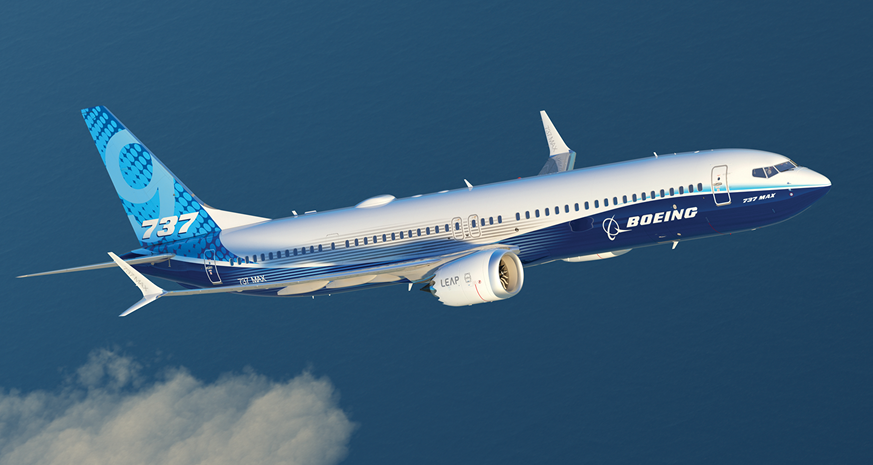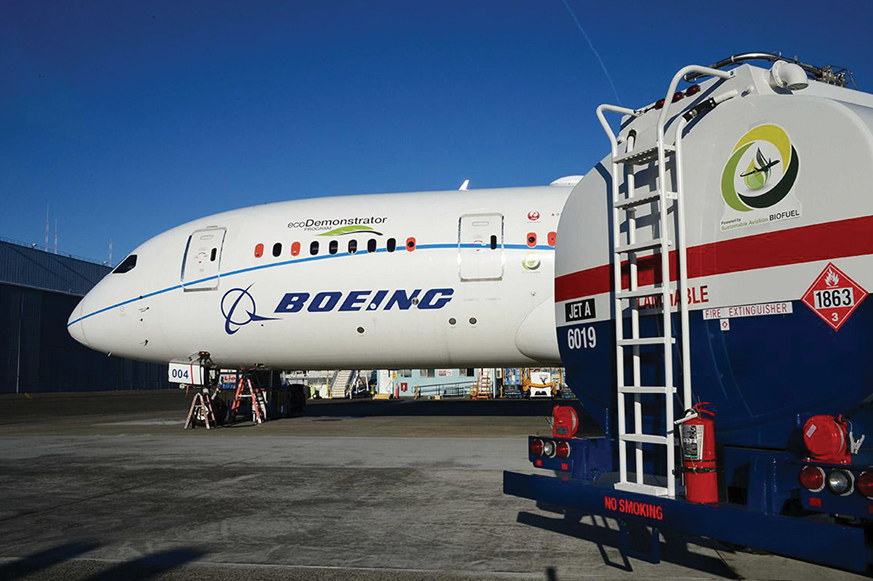- Home
- Media Kit
- Current Issue
- Past Issues
- Ad Specs-Submission
- Ad Print Settings
- Reprints (PDF)
- Photo Specifications (PDF)
- Contact Us
![]()
ONLINE
![]()
ONLINE

Advancing
Aerospace Innovation
Editors’ Note
Landon Loomis was appointed Boeing Company’s Vice President for Global Policy in August 2020 and also serves as Managing Director for Boeing Brazil. He joined Boeing in September 2019 as the senior director for Trade and Alliances on the Embraer Partnership and Group Operations team. Prior to joining Boeing, Loomis served in the White House as a special adviser to Vice President Mike Pence from April 2017 to August 2019. He has also served in various U.S. government roles, including policy adviser in the Office of the U.S. Trade Representative, as well as commercial attaché at the U.S. embassies in Beijing and Brasília. He has resided in and worked in 10 countries in Latin America, Asia and Eastern Europe. Loomis has a master’s degree in international economics and is fluent in four languages: English, Mandarin Chinese, Portuguese and Spanish.
Company Brief
Boeing (boeing.com) is the world’s largest aerospace company and leading provider of commercial airplanes, defense, space and security systems, and global services. As a top U.S. exporter, the company supports commercial and government customers in more than 150 countries. Building on a legacy of aerospace leadership, Boeing continues to lead in technology and innovation, deliver for its customers and invest in its people and future growth.

Boeing 737
Will you provide an overview of your role and key areas of focus for Boeing?
I am responsible for driving company strategy, developing business and industrial partnerships, and leading Boeing’s business, operational and support functions across Latin America and the Caribbean. A key aspect of this work also entails leading our government affairs and corporate citizenship programs for the region. Globally, the company is focused on enhancing the safety of our industry, the quality of our products, the success of our customers, and the confidence of the flying public. In the region, we are also making concrete contributions to global goals like environmental sustainability, particularly sustainable aviation fuels, increasing social equality and diversity, driving the affordability and performance of our supply chain, and maintaining our position at the forefront of technological development.
How do you describe the Boeing culture and how critical is culture to the success of the company?
Our global community comprises people from all backgrounds, ethnicities, identities and perspectives with a common goal to advance aerospace innovation today so we can inspire tomorrow. Safety is our number one priority. We believe that diversity and inclusion makes us better, stronger and smarter. We are committed to education and training because supporting our talent today sets us up for a successful tomorrow. We take into account how every product we build and service we provide affects our world now and in the future. This includes considering the full life cycle of our airplanes from design and production to operation and end-of-service retirement. Through our investment in education programs, veterans care, cultural organizations and support efforts, we give back to our communities, investing in their next generation of leaders, and extending equity across the globe. We hold ourselves to the highest standards in our work, how we do it and how we treat one another. We are also committed to working with our suppliers to source responsibly, create economic opportunity for diverse communities and drive industry sustainability progress.
Will you discuss Boeing’s history in Latin America and its commitment to the region?
Boeing has a strong aviation and aerospace presence in Latin America and the Caribbean and has been involved with a wide variety of airlines across the region from the early days of commercial aviation. Boeing’s history in the region dates back to 1932 when the company delivered 14 F4B-4 fighters to the Brazilian military. In the early days of Latin American aviation, airlines such as Colombia’s SCADTA (now Avianca) and Brazil’s VARIG expanded their routes with Boeing airplanes. Today, Boeing works with leading Brazilian researchers on technology to develop new aviation biofuels, and provides the region’s commercial and space and defense sectors with products, systems, services and support.
Boeing is also working with Latin American engineers and scientists to develop the technology to make aviation more sustainable in the 21st century. One of these initiatives is taking place in Brazil where Boeing is investing $2 million on initiatives that maximize social, economic and environmental benefits to local communities engaged in the development of feedstock that can be used to produce sustainable aviation fuel.
Boeing has a significant supply chain presence in the region. Together with our suppliers, we spend about $1 billion annually with Mexico’s aviation manufacturing industry alone.
Boeing also invests in projects that support local communities in Latin America to strengthen science, technology, engineering and math (STEM) curricula in schools. By working with partners such as Pan-American Development Foundation, Educando and Instituto Ayrton Senna, Boeing has reached more than 167,000 students in Brazil, 11,000 students in Mexico and 45,000 students in nine other countries across the region.

A Boeing aircraft being refueled with
Boeing’s sustainable aviation fuel “Ecodemonstrator”
Is there close coordination at Boeing from region to region in order to provide consistent messaging and seamless service?
At Boeing, we have a worldwide view of our business and for us to accomplish this mission, we collaborate with colleagues and partners from every corner of the world. The reason why Boeing works with entities across the planet is simple: In order for us to overcome the challenges we all face, and to ensure our products and services are the best in the world, we need to partner with the best of the best across the world. When these collaborators work together with the bright, diligent members of the Boeing team, whose collective talents are as broad as they are deep, amazing things happen. Technology breakthroughs are taking place not just within Boeing facilities, but also at institutions and companies worldwide.
How has Boeing adapted its business to address the safety challenges caused by the global pandemic?
We are investing heavily in designing, developing and testing a multi-layered approach to maintain the safety of the travel experience. One such layer of protection is the air filtration system present on Boeing airplanes that includes High Efficiency Particulate Air (HEPA) filters similar to those used in hospitals and industrial clean rooms. HEPA filters are more than 99.9 percent effective at removing particulates such as viruses and bacteria from the air before it’s returned to the cabin. Air is also exchanged in the cabin 20 to 30 times an hour – that’s every two to three minutes.
We’re also continuing to research and evaluate new technologies to enhance safety, including ultraviolet light disinfecting systems and antimicrobial coatings for high-touch surfaces. We’re also working with academics, health experts and learning institutions worldwide to field studies and facilitate research on reducing the potential of disease transmission on airplanes.
On top of that, we’re diving into data. Modeling and analytics will help us understand where to focus our energies and track the improvements our entire industry is making as we work together.
The return of air travel is vital to the recovery of the global economy and to the global community. Everyone – our families, our friends, and our business colleagues around the globe – must be able to resume their journeys with confidence. When we do that, we connect nations and cultures, we foster understanding and reduce divisions, and we strengthen our human connections.
What has been the impact of the global pandemic on the aviation industry in Latin America and what are the keys to recovery for the industry?
While the aviation industry across Latin America and the Caribbean has been hard hit by the pandemic, fundamental growth drivers in the region remain strong. South America, in particular, has considerable untapped market potential for air travel expansion driven by economic expansion and a large geographic area best served by air travel. Boeing projects demand for 2,610 new airplanes in Latin America and the Caribbean over the next two decades, valued at $290 billion. Single-aisle airplanes, such as the 737 family, will continue to be the main driver of capacity growth in this region. In other words, Boeing forecasts a resilient market for Latin America and the Caribbean despite near-term challenges and we are operating accordingly by supporting our customers, looking for new opportunities to partner and working to positively impact the communities where we operate.
At the moment, the region remains locked down and sectors such as tourism, which contributed $358 billion to regional GDP in 2019 (and 14 percent of total GDP in the Caribbean), are down nearly 70 percent, due largely to an even larger decline in international travel over the same period. In order for the recovery to begin, there must be clear, stable and harmonized rules for international travel. Like everyone, the people of Boeing have been deeply affected by the COVID-19 pandemic. Our determination and commitment to ensuring the health and confidence of airline passengers and crews is unwavering.
Your served in government prior to assuming your role at Boeing. What excited you about the opportunity to join Boeing and has it been what you expected?
Before joining Boeing, I covered the aviation portfolio at the U.S. Embassies in China and Brazil, and worked on aviation trade cases in Washington, D.C. I had seen the industry from multiple angles within government and wanted to put that insight to use within the industry itself. I wanted a challenge and to be part of a motivated group of people who were tackling the biggest issues, while holding themselves accountable for concrete, quantifiable results. This is exactly what I found at The Boeing Company. We are making meaningful contributions to many of the essential challenges that face us today, from delivering COVID vaccines and developing new disinfectants, to investing in new technologies to fight climate change, to jump-starting economic recovery and driving innovation.
What advice do you offer to young people interested in a career in the aviation industry?
Aviation is a vibrant, diverse and creative ecosystem. There are many entry points – pilot, engineer, program manager, and strategist among them. Follow your passion, be eclectic in your interests, allow yourself “range” as described by David Epstein. The larger your field of experience, the wider your opportunities, and the more valuable you’ll be to the team down the road. STEM is at the core of what we do. Engage STEM study, participate in math competitions and science fairs, grow your network around these disciplines, and invite a mentor to give you advice. Don’t stop being inspired by the dream to fly and the opportunity to “Connect, Protect, Explore and Inspire the World.”![]()